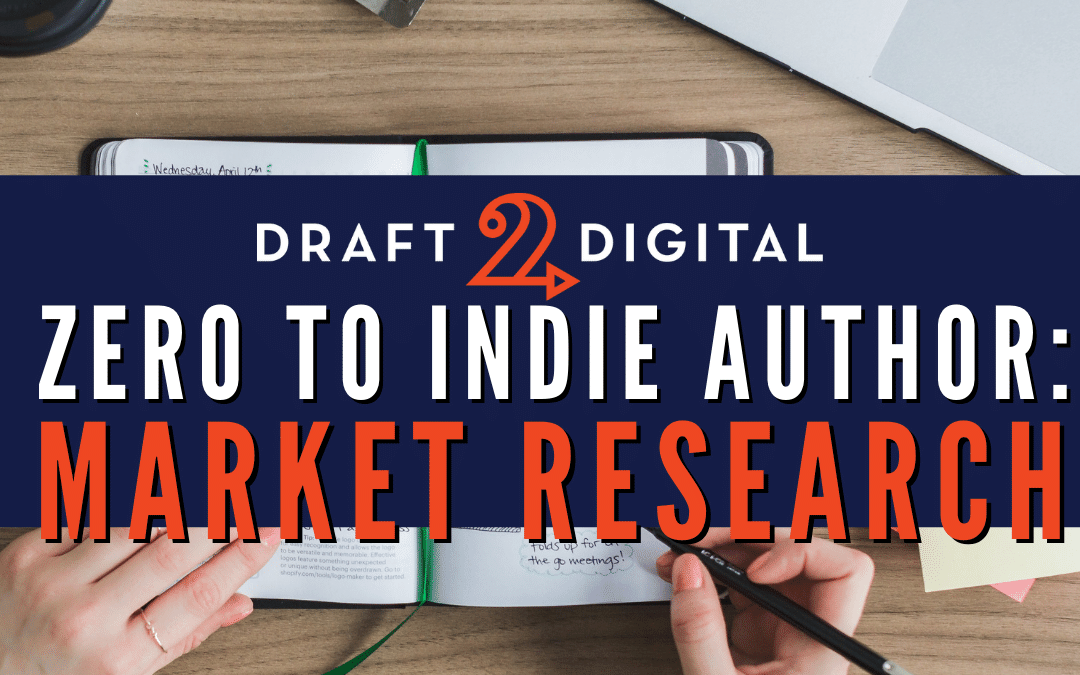Market research is an easy step to overlook, especially for newbie authors like me. After all, it feels like it might impact artistic integrity to check out what readers are buying before you publish … Right?
It all depends on your approach. (Which is not to say that writing for the market is in any way a bad thing. We all need to earn a living!)
Here’s how I look at it. There are genres I’m already interested in writing, and my ultimate goal is to write a book that people want to read. Heck, I’m writing the book that I want to read, so I know there’s at least a market of one!
Rather than fumbling blindly for a narrative that isn’t overplayed, I want to get a feel for what’s out there. What are readers buying and not buying? What themes are already prevalent in my genre, and which are less common?
Like any business owner, it behooves writers to do their homework before committing to a project—especially a project that could take a year or more to complete. If we want to be full-time authors, we better make darn sure we know what we’re doing when we put our books out there into the world.
In this month’s installment of Zero to Indie Author, we’ll cover how to conduct market research and ensure that your work is on the right track.
Do your homework
The first step is a basic one: Google it. Or do the reader equivalent, which means browsing bestseller lists on all your favorite ebook retailer sites to see what people respond well to. You can also search specific keywords you think you might want to target just to see what comes up.
Most likely, you’ll find other authors and series that look very similar to the kind of book you want to write. Make a note of their names and titles—you’ll come back to this list. A lot.
Book covers and titles
While you’re poking around, check out the book covers and titles of the works on your similar-to-my-book list. Note similarities between the covers of the bestselling books. Each genre has certain conventions that readers are used to seeing—ignore them at your peril. Pay attention to the titles, too. Are they long or short? Funny or snappy? What does the font look like?
As a reader, you should already have a good sense of what you like. Notice what draws your eye. Are you most drawn to titles that tell you precisely what you’re getting? Or do they draw you in with a bit of mystery?
Read books in your genre
This step is a fun one. You get to read books you (presumably) enjoy, and you get to tell people it’s “research.” The goal is to develop a solid working knowledge of the books already published in your space.
So if you want to write space operas, you’ll read some of the bestsellers and get to know the tropes, characters, and famous series that already exist. If you want to write about a genetically altered monkey who founds a colony of enslaved humans on Mars, but a book with that same hook already exists, you’d better come up with some distinguishing points for yours.
Understanding the common tropes in your genre is also incredibly important. Readers are used to genre fiction hitting certain notes, like a happily ever after at the end of a romance novel. If they don’t get it from your work, it’s unlikely they’ll keep reading. And the best way to learn the tropes is to read them yourself.
Pay attention to the marketing
Next, look at book descriptions and ads in your genre. If you’ve been searching online for a few days and accept cookies, you won’t even have to look for these ads—they’ll find you.
Check out the book descriptions on ebook retail sites in particular. How do authors describe their work? What kind of language draws readers in? Which books do you want to read most, and why? Which descriptions leave you confused or totally disinterested? All of this will help inform the marketing you’ll use for your own book when the time comes.
Read reviews
This might just be the most useful task of all, and many writers skip it altogether when they’re researching their market. After all, who cares about reviews of someone else’s work?
Turns out, you should. Read reviews to learn what other readers are saying about books in your space. What do they love and hate about the popular and not-so-popular books out there? Make a note of the scenes readers mention most, plot points they love or hate, and what draws them to a character.
Identify your ideal reader
After all this research, you should be able to answer the question: who is your ideal reader? Are they more likely a man or a woman? Boomer or Gen Z? A major sci-fi geek, or a cross-genre first-timer? Jane Friedman has a blog post that goes very in-depth on this topic, so check that out for more detail on how to do this.
Understanding who you’re writing for makes a big difference at every stage of the process—or at least, it should. One handy trick is keeping a specific individual in mind as you write. (It’s okay if this person is you, by the way.) Writing for an individual reader will prevent you from pandering to everyone. And spoiler alert: you won’t please everyone, so don’t worry about appealing to all readers. Appeal to your ideal reader, and you’ll get your 1,000 true fans.
